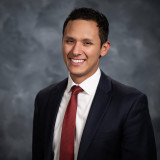The path of medicine brings many challenges: delayed financial gratification; time allotted to studying rather than socializing; a pause on hobbies and personal pursuits; the accumulation of debt; and, for the religious, potential episodes of doubt in one’s faith. At least that’s how it was for me when I first got my white coat as a medical student and then later on as a resident as I continued to experience my highs and lows.
But it was not like I did not prepare ahead of time. After all, preparedness leads to fewer surprises. Before applying for medical school, I reached out to residents and physicians who had already signed on to this path to solicit advice. I asked them what they would do differently if they could go back in time and do it all over again. Some suggested I play my favorite sport or read a book when I felt stress peaking; others told me to go on a walk before an exam. One person jokingly but also somewhat seriously suggested that I find places that offered free meals; a close friend reiterated the importance of mental health and how I should reach out whenever I felt like a sinking ship.
All of these comments were valuable pearls that I took to heart. Looking back, I got some good returns on these investments. But the one piece of advice that kept me grounded and that brought me the most inner peace was a comment from a few residents about the importance of relying on faith to stay strong in this path. As someone who identifies as Christian, I found this emphasis on spirituality comforting and pragmatic.
So as I began my walk in medicine, I placed my spiritual walk with Christ as a priority. For me, the spiritual walk is the idea of having someone to go on this journey into medicine and life with; the idea that I’m not alone in my many trials and tribulations. Walking alongside a higher being makes the journey and the destination more satisfying and rewarding.
Of course, even as I kept the faith, I encountered much shaky ground when it came to balancing life and medicine. I’d wonder: How do I take care of my mental health and make sure I do well on this exam? How can I go on a hike before my exam when I need sleep as well? How can I read a non-medical book when I have 100 slides to review before tomorrow? When can I cook when I have to be in lectures and in the library all day? Can I afford to go to a concert with some friends this weekend to blow off steam?
For me, the constant sense of imbalance left me feeling mentally drained — and that wasn’t all.
I was raised by parents of faith. I thought of myself as someone involved and active in church. But eventually, the pressures of medical training rocked my faith and disrupted my availability to participate more in my Christian community. I’d ask myself: Why am I not performing like I used to in college? When can I find the time to attend church or read my bible? How can I feel whole when all the pieces in me are being pulled away from one another? Where can I find solace in the chaos of medical training? When will I be able to get back to participating in church activities?
As time passed, my heart, once soft, became more callous in response to the punches of life. It felt like not only was medicine meant to teach me about the art of healing, but also to test my survival in the midst of physical, emotional, and spiritual fragility.
Fortunately, even as I struggled, my family was there for me. I admit that having a supportive family lessened the severity of dealing with the demands of life that often come impromptu.
When I told my parents how I was feeling, they reminded me that even challenges bring good to people’s lives. They told me that I had a loving God and Father, who was there in the highs and in the lows, in the proudest and in the darkest moments, and in the unstable and firm grounds. My parents are also medical professionals. They also went through training. And instead of losing their faith, as they reminded me, they came out stronger than ever. Listening to them, I realized that everything would turn out alright even if I did not see it at that moment. In hindsight, my own vision was blurred by my lack of faith — I wasn’t able to see the work that my God was building for me.
Today, my outlook is a little shinier and less gloomy. The roads ahead continue to be rough, but I have a clearer vision that everything will work out as it is meant to — that no hard work is ever without opportunity in sight. My past struggle with my religion reminds me that I can get through any challenge — including the waning of faith. My faith can take me out of the rough terrain and put me back on the silk roads.
I am close to finishing my first year as a resident, and today I can say this: Having this relationship with my God keeps my heart off afib and back into normal sinus rhythm. It brings me clarity in the fuss of it all. And it boosts me back to finding solutions to my challenges.
My spiritual foundation is personal, but it also has an impact on how I treat my patients. When I am at my most faithful, I am the best version of myself. I am able to recognize what a patient needs emotionally, and to provide it: an ear that listens, a heart that cares, a pair of arms to give a hug.
I know that not every clinician relies on religion or spirituality when times get tough. That makes sense — faith is an intensely personal thing. But I do know that the lessons my faith have taught me can help any clinician: Namely, that you can get through this, no matter the challenges ahead, and that you are enough to make it to your destination.
What (or whom) do you rely on to get you through the trials of medicine? Share in the comments!
Dr. Ricardo Chujutalli is a family medicine resident in Orlando, FL. He received his masters in business administration from La Sierra University and masters in bioethics from Loma Linda University. He is the co-founder of inCLINICALS, a platform where health care students rate and review their preceptors. Dr. Chujutalli was a 2022–2023 Doximity Op-Med Fellow.
Image by Lidiia Moor / Getty







